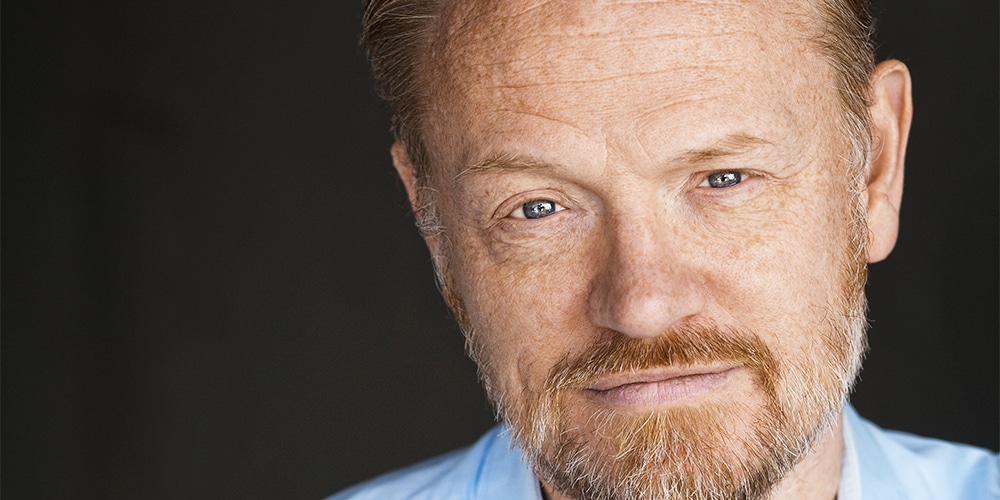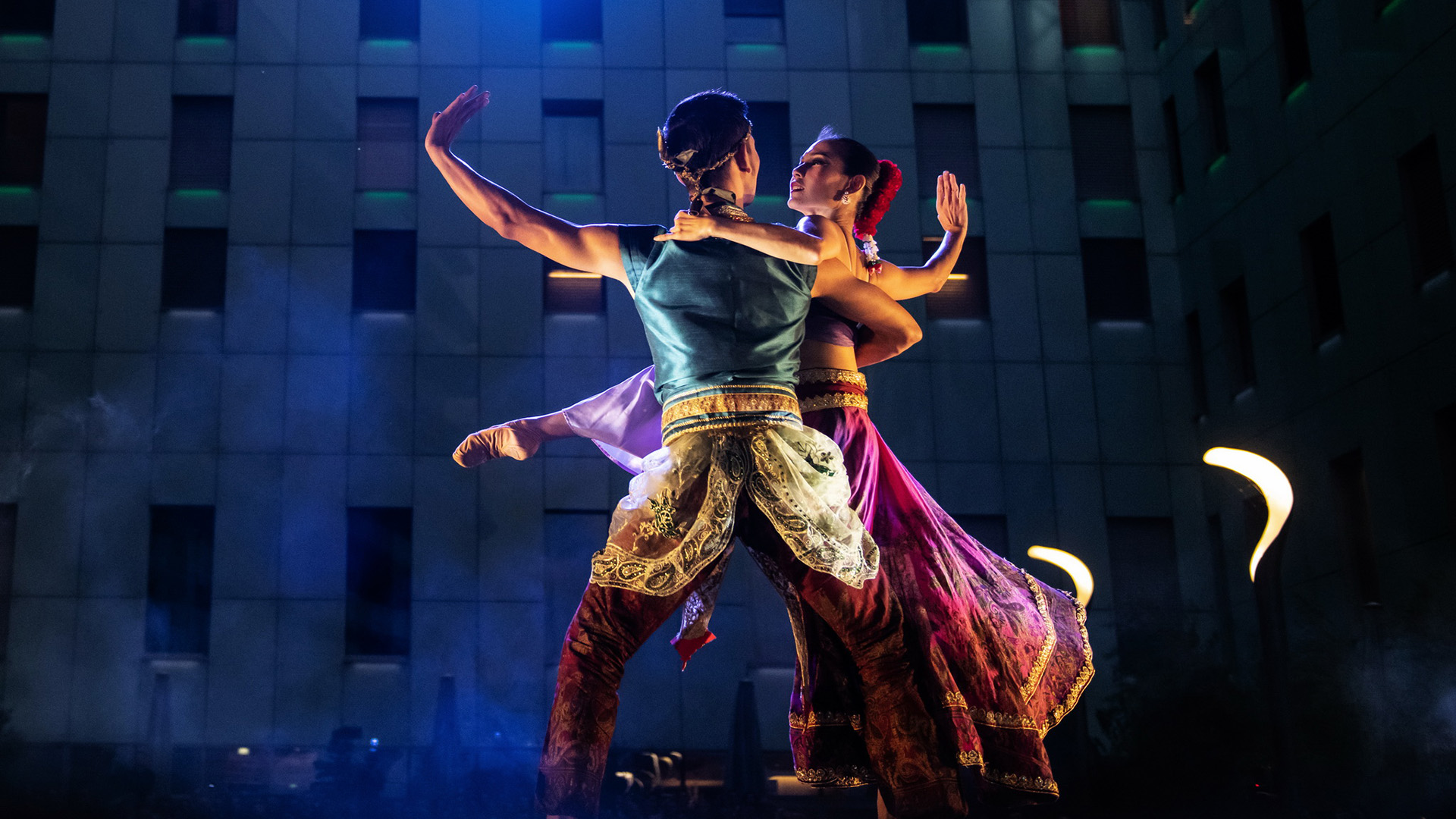
Jared Harris (Photo courtesy of Getaway Management)
Culture + Style‘Mad Men’s’ Jared Harris on Acting: ‘You Need More Than One Big Break’
By David FriendFrom the whip-cracking Lane Pryce on “Mad Men” to criminal mastermind James Moriarty in “Sherlock Holmes: A Game of Shadows,” Jared Harris has found a career in making the multi-layered villain his own. His latest role, in Kelly Reichardt’s Sundance Film Festival premiere of “Certain Women,” is a different exploration of the “bad guy:” He plays a broken man who resorts to a hostage situation.
As part of a collaboration between The Autograph Collection’s “The Individualists” series and Variety, Harris talked about picking the right roles and how he manages to spend time with his wife despite his busy work schedule.
You’ve managed to forge an acting career where you’re both consistently employed, and also playing interesting characters. How do you keep it fresh?
I suppose one hopes if you do a good job that people will be attracted to that, and they’ll want to use you. In my case, I’ve always tried to be different in everything I’ve come out with. I’ve never tried to repeat myself twice or three times in a row. I’m always thinking about contrast and wanting to challenge myself.
For “Certain Women” what stood out to you as the reason you wanted to make the film?
I felt great empathy for the guy. The man had his identity taken away from him, because he was someone whose purpose was achieved through his work and that had been taken away. He’s involved in this sort of workplace lawsuit and he’s suffered an injury and it’s affected the way he’s able to see … He got bad advice from his lawyer, took a settlement and that was before they realized how bad and how permanent the injury was going to be and now he’s suffering legal and medical bills. Essentially the guy goes loopy and he takes a hostage.
The movie itself, for me, when I read it, was about loneliness and isolation. About people trying to find contact, in some way, with other people and being frustrated by that. That’s what I took from the landscape that the film is placed in — in Montana. There’s this great natural beauty but at the same time there’s massive separation from people and one another. There’s a certain isolation. It was really beautiful and terrifying in that sense.
Your early career was spent mainly in the theater, but you’ve shifted your focus almost entirely to film and television. Why the change?
Honestly, I got fed up that everyone’s goal in a theater piece is geared towards one person’s approval, and that’s the critic. If you’re in New York it’s the Times. If you’re in London it’s not quite as bad, there are several critics there, but they all tend to have been cut from the same cloth. The New York Times needs to give you a love letter for you to survive. It’s a tyrant in a sense, and who wants to live under that sort of circumstance? It’s not as if they’re giving the audience a chance.
What do you consider your breakthrough role?
You read biographies of actors and there’s this perception of a “big break.” The reality is, you need more than one big break. I could say it was when I got cast in (Off-Broadway stage production) “Henry VI Part 1 and 2.” Or I could say playing Andy Warhol in “I Shot Andy Warhol;” that brought me national attention.
At the end of the day, everyone has to be in a hit because the business side of this dominates so much — and the business side is attracted to success. It’s very difficult to maintain a career if you’re not in a success.
Where do you call home? And what makes it unique?
I’m not trying to be sentimental, but to me home is wherever my wife and I happen to be. When I’m with (my wife) Allegra we have certain places we routinely go to that feel like home. I suppose home is an emotional place that you feel is familiar — it’s safe, it’s comforting.
We’re rigid about making sure one of us gets on a plane and goes to visit the other person every couple of weeks. Unfortunately, it’s mostly her coming to me, but if I get time off I go meet her somewhere. I don’t want to be apart from her.
Have any places you’ve visited for a project really stood out as special for you?
I really enjoy working in South Africa. It’s an incredible country. It’s still the Wild West in some elements.
I love location filming. When we were working on “The Crown” we were going to these amazing country houses and these great big palaces, old estates. They very sweetly said ‘Yes you can come film in here.’ The history in these places is amazing.
There were these places where we filmed “Sherlock Holmes,” and they had this long corridor and on the wall there were hundreds of small portraits, and on the other side was this big, long window, and you walk along this wall and see these famous portraits of people from the Tudor period. Some of these people you obviously know, others you’d heard the name of in your history classes. As I was walking I realized there was a purpose to the portrait gallery, because if you got to court you needed to know who you were talking to.
That’s something relatively unique to working in film. You get into these spaces that are not open to most people.
I did a movie in China called “Shadow Magic” and we spent four days shooting in the Forbidden City, and we were there from 4 a.m. until 9 a.m. before the public came. We could go anywhere. We had the run of the whole place. We’d go and look at all of the different rooms, which you couldn’t possibly do from 9 a.m. onward. We got to shoot on the Great Wall and we filmed on parts that weren’t open to the public and were never going to be open to the public. It was fantastic.
Do you use social media?
My wife is kicking me into the 21st century. She’s got me on Twitter. She says: ‘Nowadays you have the opportunity to be in direct contact with either fans or people who are interested in the same things you are.’
You don’t have many opportunities to speak for yourself and interact (as an actor). You’re constantly putting yourself, and something you care about, in other people’s hands. You’re in the director’s hands, the editor’s hands, the marketers’ hands, your agent’s hands. (Social media) is an opportunity for you to make contact directly and have your own voice. I feel that’s important.







